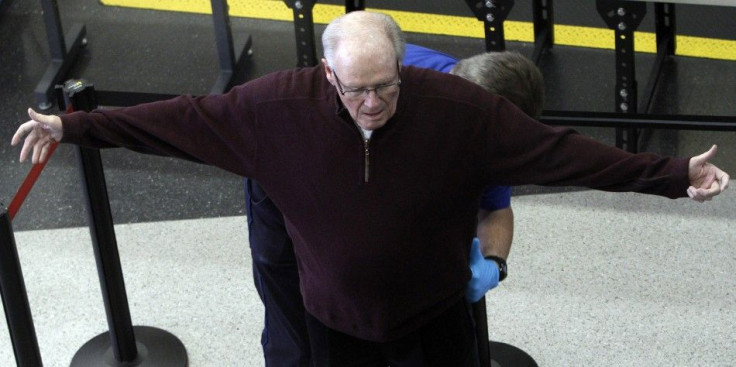Texas Bill To Make TSA Pat-Downs Illegal Returns

Three months after the U.S. Transportation Security Administration announced it would remove controversial backscatter body scanners from airports, a Texas bill is taking aim at pat-downs.
Rep. David Simpson, of Longview, has reintroduced a proposal to the House State Affairs Committee that would prohibit excessive touching by TSA agents and make the TSA responsible for intentional touching of travelers’ private parts during security pat-down procedures. The tea party Republican is seeking to make the pat-downs illegal in the state and travelers would have the ability to report TSA workers without probable cause.
Simpson introduced the proposal in 2011. He said it was the controversial body scanners that originally prompted him to propose the bill, saying the procedure was unethical, the CBS-affiliate in Houston reported on Wednesday.
“The problem is this effort at security is really treating travelers, innocent people, as criminal suspects and making them submit to unreasonable, very intrusive searches,” Simpson said. “They’re violating peoples’ most sacred areas of their bodies.”
Simpson said abuse of such power by TSA workers is common. He noted a recent incident where a Texas military veteran was forced to remove his prosthetic leg while traveling through a security checkpoint.
In 2012, Dina Frank, 7, who has cerebral palsy, was subjected to a patted-down by airport workers because of her leg braces and crutches, causing the family to miss their flight.
“They're harassing people," her father, Joshua Frank, a Long Island pediatrician, said. "This is totally misguided policy. Yes, I understand that TSA is in charge of national security and there's all these threats. For [Dina] to be singled out, it's crazy.”
A similar bill Simpson proposed in 2011 would have made it illegal for TSA workers to touch travelers’ private parts through their clothing and prohibited searches on “reasonable persons.” Although the bill passed the full House, federal officials claimed if it was passed, TSA workers could face criminal charges for just doing their job.
TSA representatives declined to testify at the bills’ hearing.
The TSA announced in January changes to the body scanning machines. A TSA representative said they will no longer display nude images and will incorporate automated target recognition starting in June.
© Copyright IBTimes 2024. All rights reserved.












